
Combining Ipamorelin and GHRP-2 Peptides for GH Release
The Power of Combining Ipamorelin and GHRP-2 Peptides United Kingdom for GH Release In the realm of peptide stacking, the
Erectile dysfunction (ED), commonly known as impotence, is the ongoing difficulty in achieving or sustaining an erection adequate for satisfying sexual activity. This condition affects many men, particularly as they grow older. Gaining a clear understanding of ED, along with its symptoms and related issues like premature ejaculation, is vital—not only for those experiencing it but also for their partners, healthcare providers, and the broader community.
This complex condition is often a symptom of underlying medical conditions and health problems such as heart disease and diabetes, and can also be a side effect of certain prescription drugs and medications. It can lead to psychological stress, impact self-confidence, and contribute to emotional issues and relationship problems. Hence, a clear understanding of ED is the first step in the journey towards effective treatment.
This guide will explore the role of Hormone Replacement Therapy (HRT) and PT-141 Bremelanotide in the treatment of erectile dysfunction, offering insights into their benefits and application. Explore PT-141 peptide from Direct Peptides.
Erectile dysfunction occurs when there are ongoing difficulties achieving or maintaining an erection, affecting sexual performance. Diagnosing the condition typically involves reviewing medical history, symptoms, and possible underlying causes.
Doctors may perform physical exams, blood tests, and assess emotional factors. Common symptoms include low sexual desire, trouble getting or keeping an erection, and difficulties during intercourse.
It’s important to seek medical advice for persistent symptoms to get an accurate diagnosis and appropriate treatment.
Diagnosis of Erectile Dysfunction involves a comprehensive evaluation of medical history, sexual history, physical examination, and specific tests to identify blood flow problems.
The medical history helps identify potential underlying causes, such as heart disease, diabetes, prostate cancer, and psychological causes, while a physical exam focuses on the groin and abdomen to assess nerve sensation.
Blood tests may be conducted to check testosterone levels, cholesterol, and blood sugar. Additionally, a good idea is to include other tests like ultrasound and overnight erection test to assess blood flow and physical function during sleep. Such diagnostic procedures aid in determining the most effective treatment approach for individuals.
Erectile dysfunction (ED) can stem from a variety of causes, typically categorized as either physical problems or psychological. Physical factors might include conditions like reduced blood circulation or nerve issues, while mental health challenges such as stress, anxiety, or depression can also play a role.
Recognizing the underlying cause is key to finding the best treatment and enhancing overall quality of life. Pinpointing the specific type of ED enables healthcare professionals to design tailored and impactful treatment strategies.
Stay active and eat healthy to help prevent erectile dysfunction and improve your sex life. Keep your blood pressure and cholesterol under control, as they affect blood flow. Limit alcohol and avoid illegal drugs. Take care of your mental health and seek help if needed.
Talk openly with your partner about any relationship concerns. Regular check-ups with your doctor can catch potential health issues early.
Hormone Replacement Therapy (HRT) is a medical treatment used to address symptoms of hormonal imbalance. It’s particularly helpful for men with low testosterone levels, a common physical cause of Erectile Dysfunction (ED).
HRT works by bringing testosterone levels back to a healthy range. Testosterone is a key hormone for male sexual function, including the production of nitric oxide, which is essential for erections.
By increasing testosterone levels, HRT can improve ED symptoms in men with low testosterone. This often leads to better sexual performance, higher self-confidence, and stronger relationships.
While HRT can be effective, it does have potential risks and side effects. These may include acne, sleep apnea, mood swings, weight gain, smaller testicles, and a higher risk of cardiovascular issues, especially in men with pre-existing heart conditions. Because of these risks, it’s crucial to talk with a healthcare provider before starting HRT.
It’s also important to remember that HRT isn’t a one-size-fits-all solution. It should be part of a broader ED treatment plan, including lifestyle changes and mental health support.
PT-141 Bremelanotide is a new treatment for erectile dysfunction (ED). Unlike traditional ED medications that work by improving blood flow, PT-141 targets the nervous system.
It’s a synthetic peptide that stimulates melanocortin receptors in the brain, which are important for sexual arousal and function.
PT-141 boosts sexual arousal signals in the brain, leading to an erection. It doesn’t rely on sexual stimulation to work and can create spontaneous erections. This makes it a unique option for men with ED, especially those who haven’t had success with other treatments.
One big advantage of PT-141 is that it works without requiring direct sexual stimulation. Its unique mechanism can help men who haven’t responded to standard ED treatments. It’s suitable for men of all ages and doesn’t interact with food or alcohol.
Like any medication, PT-141 does have downsides. Possible side effects include nausea, flushing, and headaches. It’s only available as a subcutaneous injection, which might not suit everyone. Additionally, the long-term effects are still being studied, so it’s important to consult a healthcare provider before starting this treatment.
Peptides like Kisspeptin, Melanotan 2, and Melanotan 1 are gaining interest in ED research as potential alternatives for men with hormonal or arousal-related issues.
While these peptides are promising, they are still in the research phase and require more studies to confirm their safety, effectiveness, and long-term effects. Always consult a healthcare professional before exploring experimental treatments.
Explore Peptide Supplies at Direct Peptides United Kingdom for all your reconstitution requirements.
Hormone Replacement Therapy (HRT) and PT-141 Bremelanotide are both effective treatments for erectile dysfunction, but they work in different ways. HRT, specifically testosterone replacement, targets hormonal imbalances that often cause ED.
It’s particularly effective for men with low testosterone levels, helping to improve erectile function and overall sexual performance. PT-141, on the other hand, works by stimulating melanocortin receptors in the brain, which increases sexual arousal. This makes PT-141 a good option for men who haven’t had success with traditional ED treatments.
The choice between HRT and PT-141 depends on the patient’s specific needs and preferences. HRT is typically better for men whose ED is caused by low testosterone levels and who are comfortable with the risks and side effects of hormone therapy.
PT-141, however, may be ideal for men who prefer a treatment that doesn’t require direct sexual stimulation or who want to avoid the potential side effects of traditional ED medications. It can also be a good option for men whose ED is linked to psychological factors rather than physical causes.
Erectile dysfunction (ED) is a common condition that affects men of all ages. Treatments like Hormone Replacement Therapy (HRT), penile implants, and PT-141 Bremelanotide offer effective ways to address the causes of ED. However, their success depends on proper use and individual health factors.
That’s why it’s crucial to consult a United Kingdom healthcare provider before starting any treatment. A medical professional can recommend the best option based on your health, weighing the risks and benefits.
It’s also important to raise awareness and encourage research around ED. Despite how common it is, ED is still a stigmatized condition that many struggle to talk about. By promoting open conversations and further research, we can break down barriers, making it easier for individuals to seek help and improve their quality of life.
Shop ALL Peptide Nasal Sprays from Direct Peptides United Kingdom today, your trusted supplier of premium clinical grade peptides online.
[1] Bassil N, Alkaade S, Morley JE. The benefits and risks of testosterone replacement therapy: a review. Ther Clin Risk Manag. 2009 Jun;5(3):427-48.
[2] Diamond LE, Earle DC, Rosen RC, Willett MS, Molinoff PB. Double-blind, placebo-controlled evaluation of the safety, pharmacokinetic properties and pharmacodynamic effects of intranasal PT-141, a melanocortin receptor agonist, in healthy males and patients with mild-to-moderate erectile dysfunction. Int J Impot Res. 2004 Feb;16(1):51-9.
[3] Rosen RC, Diamond LE, Earle DC, Shadiack AM, Molinoff PB. Evaluation of the safety, pharmacokinetics and pharmacodynamic effects of subcutaneously administered PT-141, a melanocortin receptor agonist, in healthy male subjects and in patients with an inadequate response to Viagra. Int J Impot Res. 2004 Apr;16(2):135-42.
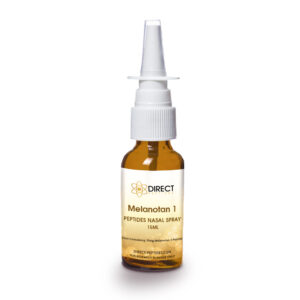
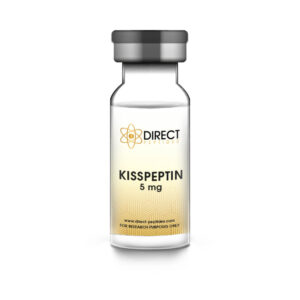
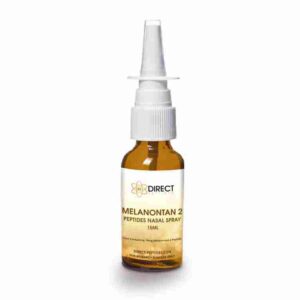
TWIN PACKS
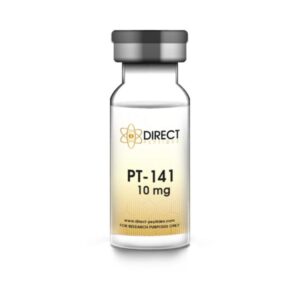
New Reduced Price
New Reduced Price
ALL CONTENT AND PRODUCT INFORMATION AVAILABLE ON THIS WEBSITE IS FOR EDUCATIONAL PURPOSES ONLY.
DISCLAIMER: These products are intended solely as a research chemical only. This classification allows for their use only for research development and laboratory studies. The information available on our United Kingdom Direct Peptides website: https://united-kingdom.direct-peptides.com is provided for educational purposes only. These products are not for human or animal use or consumption in any manner. Handling of these products should be limited to suitably qualified professionals. They are not to be classified as a drug, food, cosmetic, or medicinal product and must not be mislabelled or used as such.

The Power of Combining Ipamorelin and GHRP-2 Peptides United Kingdom for GH Release In the realm of peptide stacking, the

Benefits of TB500 and GHK-Cu Peptides United Kingdom in Combination In regenerative medicine, combining TB500 and GHK-Cu peptides is paving
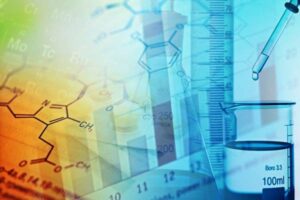
The Power of Epithalon and Thymalin Stack United Kingdom for Anti-Aging The search for longer life and slower aging has

What is CJC-1295 United Kingdom? An Extensive Guide Peptides like CJC-1295 are becoming more popular in the world of health

401 N. Mills Ave, Ste B, Orlando, FL 32803, United States
